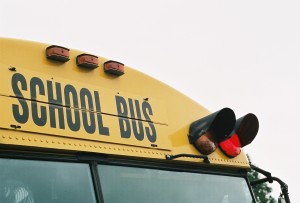 WASHINGTON — The U.S. Supreme Court has declined a humanist organization’s petition for an appeal of a federal circuit court ruling that unanimously concluded that prayers presented at board meetings for a Texas school district are constitutional and do not violate the Establishment Clause of the First Amendment.
WASHINGTON — The U.S. Supreme Court has declined a humanist organization’s petition for an appeal of a federal circuit court ruling that unanimously concluded that prayers presented at board meetings for a Texas school district are constitutional and do not violate the Establishment Clause of the First Amendment.
“The speeches given by students at the board meetings are their own—not something they are told to say. Occasionally, students will open the meeting with a prayer. We believe the students have the right to express themselves in this manner if they choose,” Birdville Independent School District Superintendent Darrell Brown said in a statement. “Birdville ISD has been vindicated by all levels of our judicial system.”
As previously reported, the American Humanist Association (AHA) filed suit against the school district in 2015 on behalf of now 21-year-old Isaiah Smith, who believed that the district was wrongfully endorsing Christianity through the invocations.
Smith had first made headlines in 2013 when he was suspended from school for ripping pages of Leviticus out of his Bible during Spanish class. Smith was advised that he was causing a disruption to the learning environment by tearing up his Bible in class.
In the AHA suit, Smith said that the prayers made him feel like an outsider at the meetings, which he says he attended as a student and continues to attend as an alumnus.
“Plaintiff Smith considers the school board’s prayers to be divisive and exclusionary, leaving him to conclude that he is unwelcome at school board meetings and a political outsider in his own community,” the suit explained.
U.S. District Judge John McBryde, nominated to the bench by then-President George H.W. Bush, ruled in favor of Smith in August 2016. The district appealed, and in March, the Fifth Circuit unanimously overturned McBryde’s ruling.
The Fifth Circuit Court of Appeals in New Orleans ruled 3-0 that the prayers offered by students during the meetings of the Birdville Independent School District are more like those presented in a legislative body rather than a classroom. It pointed to the nation’s history and longstanding practice of presenting prayer at public events.
“[D]ating from the early nineteenth century, at least eight states had some history of opening prayers at school-board meetings,” Judge Jerry Smith wrote on behalf of the panel. “And [Supreme Court rulings] show that there was a well-established practice of opening meetings of deliberative bodies with invocations. Such practices date from the First Congress, which suggests that ‘the Framers considered legislative prayer a benign acknowledgement of religion’s role in society.’”
He likewise noted that students voluntarily present the prayers—not board members, and rejected the notion it is illegal for members of the board to participate in the invocations by bowing their heads.
AHA has expressed disappointment that the nation’s highest court has declined to review the matter.
“The Court’s decision disregards the serious coercion students face when a prayer is recited in a school-controlled environment with teachers and administrators watching and participating,” AHA Executive Director Roy Speckhardt said in a statement. “By denying the petition for certiorari, the Supreme Court is allowing this unfair and inappropriate practice to continue.”
In 1799, just 12 years after the signing of the U.S. Constitution, Congregationalist minister and geographer Jedidiah Morse said, “In proportion as the genuine effects of Christianity are diminished in any nation, either through unbelief or the corruption of its doctrines, in the same proportion will the people of the nation recede from the blessings of genuine freedom and approximate the miseries of complete despotism.”
“Whenever the pillars of Christianity shall be overthrown, our present republican forms of government, and all the blessings which flow from them, must fall with them,” he stated.
Become a Christian News Network Supporter...


